Oddly, the championship winning team found themselves homeless for the 1976-77 season, as the ice making plant at their dilapidated Barton Street Arena failed, which necessitated a move to St. Catharines 30 miles down the road after a lease could not be worked out for a second arena located in Hamilton, Mountain Arena, despite their championship form. Life in St. Catharines suited Secord well, as he scored more than a point per game with 66 in 57 games from 32 goals and 34 assists, each being more than his combined total from the previous season. On the flip side, Secord also finished second in the league in penalty minutes with 343, nearly 3 times more than he had in his previous season despite playing in six less games.
During the 1976-77 season, Secord was also a member of the Canadian team at the 1977 World Junior Championships where he earned a silver medal.
After one final season with the Fincups in 1977-78, after a move back to Hamilton's Mountain Arena, Secord was drafted by the Boston Bruins 16th overall in the first round of the 1978 NHL Amateur Draft.
In 1978-79, Secord played 4 games with the Rochester Americans of the AHL, scoring 4 goals and 6 points, but played the vast majority of his season with the Bruins, scoring 16 goals and 23 points in 71 games, which included 125 penalty minutes.
His second season with the Bruins in 1979-80 saw him play in 77 games, increasing his offensive output to 23 goals and 39 points with a jump in penalty minutes to 170, a season which saw him among the Bruins who invaded the stands to brawl with some rowdy New York Rangers fans at Madison Square Garden during a memorable incident.
His 1980-81 season got off to a rocky start, with no goals and just 3 assists in 18 games. He also played in 8 games for the Springfield Indians of the AHL before a trade to the Chicago Black Hawks for defenseman Mike O'Connell. after seeing increasingly diminished ice time on the 4th line with the Bruins when he was not a healthy scratch.
While with Chicago, Secord regained his form from his second season with the Bruins, scoring 13 goals and 22 points in half a season of 41 games. He also visited the penalty box on a regular basis, being sent off for 145 minutes.
During the 1981-82 season, Secord made the Bruins question their decision to trade him when he erupted for 44 goals and 31 assists for 75 points while amassing over 300 penalty minutes, making him the first and only player to ever reach 40 goals and 300 penalty minutes in a single season. Of note, only one other player, Dave "Tiger" Williams, ever managed even 30 goals and 300 penalty minutes with 35 goals and 343 PIM in 1980-81.
Secord continued his upward trajectory in 1982-83 as his offensive game continued to impress, as on this date in 1983 Secord became only the second Black Hawks player to ever score 50 goals in a season, joining the legendary Bobby Hull when he scored twice, plus two assists, in a 7-3 victory over the Toronto Maple Leafs.
He would eventually total 54 goals and 86 points playing with "Party Line" linemates Denis Savard and Steve Larmer, who combined for 132 goals and 297 points. Secord also had 180 penalty minutes for good measure as he made life tough for anyone who thought they were going to rough up the diminutive playmaker Savard. Secord's 54 goals put him in lofty company, as they were good for sixth in the NHL that season.
Despite his offensive success, the season felt odd for Secord "Steve Larmer came to our line. Me and Denis Savard were very fortunate to have Steve Larmer. We were a solid line. I didn't have that much penalty minutes, because our coach asked me not to fight so often. Actually, even though I scored well, I felt like I didn't play the way I was supposed to play. I was also told not to hit guys so often. I needed to play physical, and I didn't. It's big part of my game, to be on the other guys skin. When I hit a guy and the crowd starts chanting, it brings energy to me and to my teammates. And I was missing that element. It felt strange."
During this time period, Secord had many memorable fights, particularly with Willi Plett and Basil McRae of the rival North Stars, many of which were instigated by his nemesis Dino Ciccarelli, who in turn was often wound up by Savard!
Injuries derailed his next two seasons, as he played just 14 in 1983-84 due to torn abdominal muscles and 51 in 1984-85 because of issues with his thigh muscles which was related to the fact that one of his legs was actually longer than the other. He returned to full health in time for the playoffs, scoring 7 goals and 16 points in 15 postseason games.
1985-86 saw Secord play a full 80 games, hitting exactly 40 goals on his way to 76 points as well as 201 penalty minutes, the third 40 goal season of his career.
Before the start of the 1987-88 season, Secord was traded to the Maple Leafs along with Ed Olczyk for Rick Vaive, Steve Thomas and Bob McGill. His role with Toronto was clearly less focused on offense, as his penalty minutes rose to 221, the second highest of his career, while his goal total sank to 15 in 77 games, the same he had in his injury limited season of 51 games back in 1984-85.
In 1988-89 he played 40 games with the Maple Leafs, scoring just 5 goals and 15 points plus 71 penalty minutes, before a trade in February of 1989 to the Philadelphia Flyers for their final 20 games of the year, during which he only scored a lone goal with no assists while adding another 38 penalty minutes. In 14 playoff games with the Flyers, Secord had 4 assists and 31 penalty minutes.
For the 1989-90 season, Secord had a homecoming when he signed as a free agent with the Blackhawks. He would play in 43 games that season, scoring a fine 14 goals and 7 assists with 131 penalty minutes, which would put him over the 2,000 mark for his career.
He retired after the season with 766 games, 273 goals and 222 assists for 495 points and 2,093 penalty minutes with an additional 21 goals and 55 points in 102 playoff games.
But that was not the end of Secord's hockey career, as, after four seasons away from the rink, he played two seasons with the brand new Chicago Wolves of the International Hockey League in their first season of 1994-95, scoring 13 goals and 33 points in 59 games followed by 8 goals and 16 points in 47 games of the 1995-96 season before hanging up his skates for good.
After developing an affinity for flying as a teenager, Secord took flying lessons during the off-seasons and became a commercial airline pilot following his hockey career.
Today's featured jersey is a 1982-83 Chicago Black Hawks Al Secord jersey as worn during the season Secord became only the second player in Black Hawks history to score 50 goals in a season.
The Black Hawks adopted this style in 1955-56 and, with a few modernizations along the way, such as two color numbers and names on the back, this style remains virtually unchanged through today and is often listed as the best jersey in the NHL.
This particular example is from the early day's of rear hem tagging, with the jerseys customizer Gunzo's on the back left and Sandow SK on the rear right.
The Bruins removed the colored shoulders from their jerseys in 1974-75 and added the secondary logos to the shoulders halfway through the 1976-77 season. Names arrived on the back in 1977-78 and this style would remain in use all the way through 1994-95 until they moved into the new Fleet Center and debuted new jerseys at the time.
The Wolves were formed in 1994 and won he IHL's Turner Cup twice, in 1998 and 2000, and then joined the American Hockey League when the IHL folded in 2001. After joining the AHL, the Wolves then won the Calder Cup in 2002 and 2008.
Today's video section is a look at Secord's post hockey career as a pilot.
Did we mention that Secord and Ciccarelli were not the best of friends?
Here is a collection of Secord fights against some of the toughest names in the business and then strikes a nice balance with highlights of his goal scoring as well before ending with some Wolves footage as a bonus.

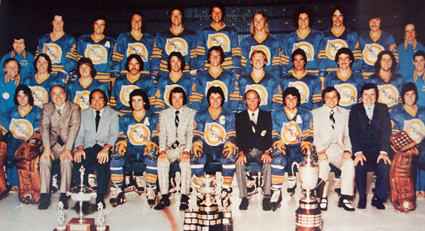
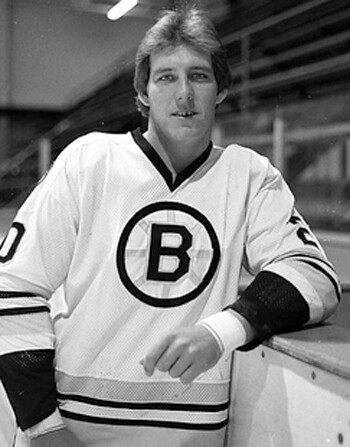
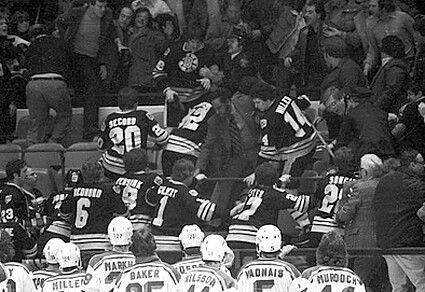
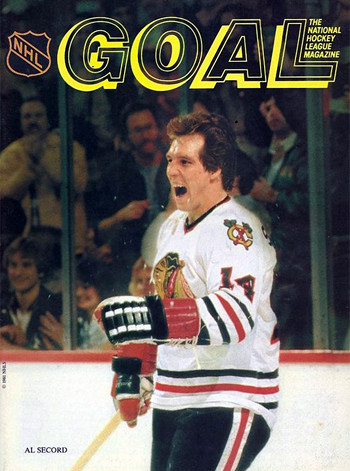
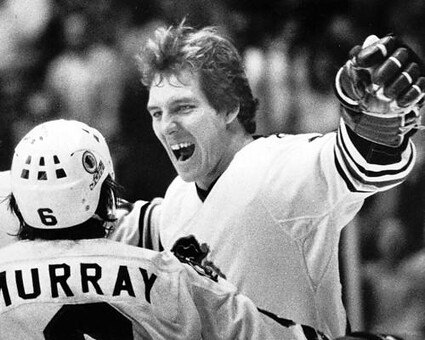
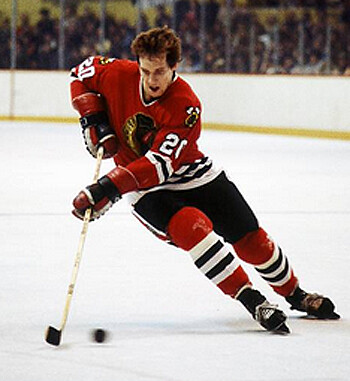
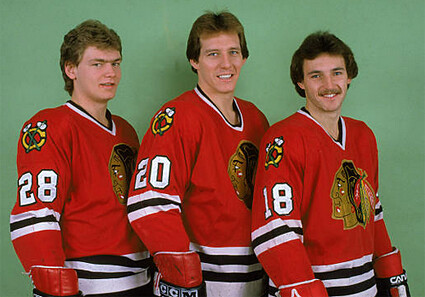
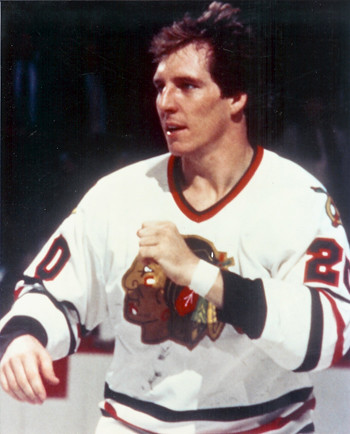

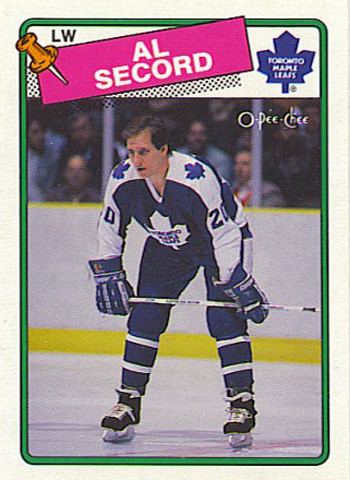
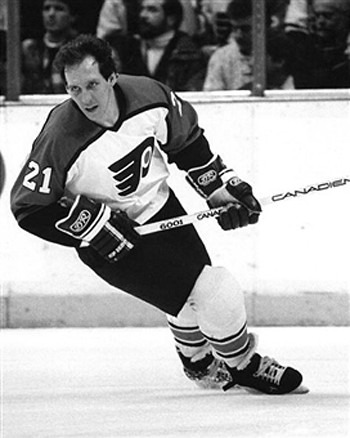
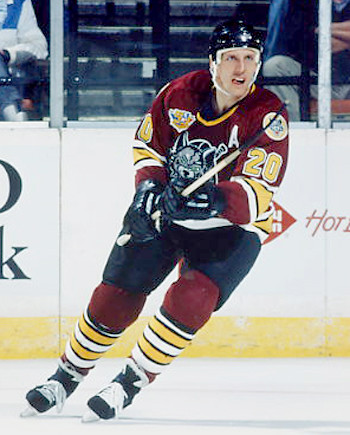

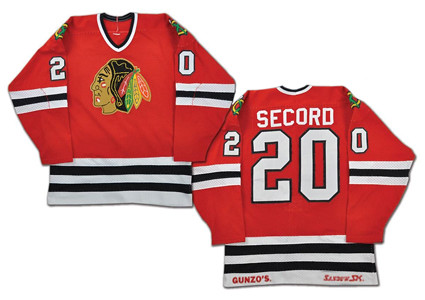
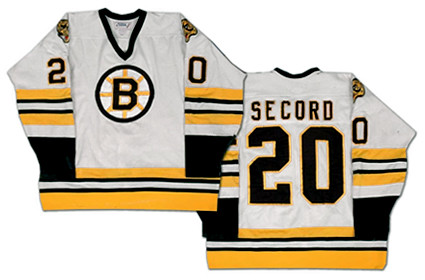











No comments:
Post a Comment
We welcome and encourage genuine comments and corrections from our readers. Please no spam. It will not be approved and never seen.